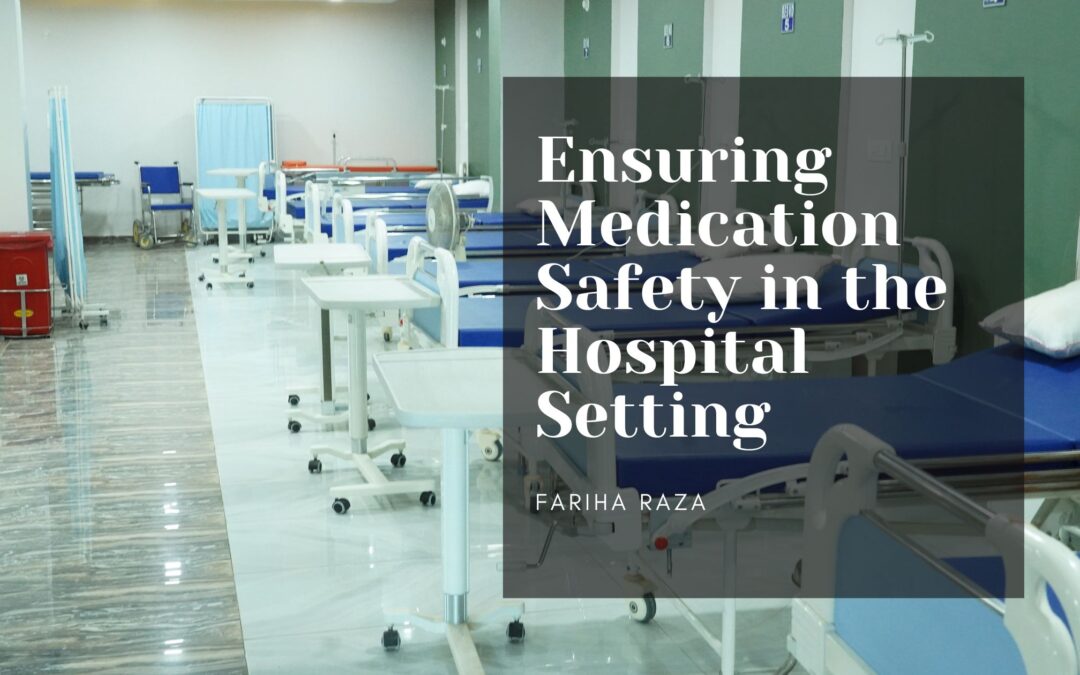Medications play a vital role in healing and recovery during a hospital stay. But let’s face it: medications can be confusing, and mistakes can happen. Thankfully, hospitals take medication safety extremely seriously. Here’s a peek behind the scenes at some of the essential practices that keep you safe:
Double (and Triple) Checking: Imagine a doctor prescribes a medication. Their order goes through a multi-step verification process. A pharmacist reviews the order for accuracy, checking for allergies, drug interactions, and proper dosage based on your medical history. In some cases, another pharmacist might even double-check the first review. This meticulous approach helps catch any potential errors before the medication reaches you.
Technology to the Rescue: Gone are the days of handwritten prescriptions. Hospitals now use electronic medication administration records (eMAR). These computerized systems ensure precise and accurate communication of medication orders. They also include features like allergy alerts and dose calculations, reducing the risk of errors.
The Power of Labels: It seems simple, but clear and accurate medication labels are crucial. Hospitals have strict labeling protocols, ensuring all medications are labeled with your name, the medication name, dosage, and instructions. Another essential safety step healthcare professionals take is double-checking the label before administering medication.
The Importance of Communication: Clear communication between doctors, nurses, pharmacists, and you is vital. Doctors discuss the medications you’ll be receiving and answer any questions. Nurses explain each medication before administration and encourage you to ask questions if anything needs clarification. Don’t hesitate to speak up if you have any concerns about a medication.
Working Together for Safety: Medication safety is a team effort. Hospitals have dedicated medication safety committees that review processes and identify areas for improvement. They also encourage a culture of open communication where healthcare professionals feel comfortable reporting medication errors or near misses. These reports analyze trends and implement changes to prevent future occurrences.
You Play a Role, Too! While hospitals have robust systems, you can also contribute to your medication safety. Here’s how:
- Bring a list of your current medications. This will help healthcare professionals avoid prescribing medications that could interact with your existing medications.
- Ask questions! Be bold about asking your doctor or nurse about any medication you’re unsure about.
- Pay attention to what you’re receiving: Double-check the medication label before taking it and ensure it matches the information you’ve been given.
- Report any side effects: If you experience any side effects after taking a medication, notify your nurse or doctor immediately.
Hospitals and patients can create a safe and effective medication environment by working together. Remember, it’s always better to be safe than sorry regarding medication safety, so don’t hesitate to ask questions and actively participate in your care.

